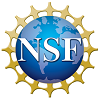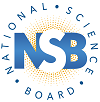Executive Summary
Key takeaways:
- Public confidence in science and scientists has remained high for decades, with the majority of American adults reporting positive assessments of science and scientists. In 2022, 88% of U.S. adults agreed that scientific research that advances the frontiers of knowledge is necessary and deserves federal government support.
- A clear majority of U.S. adults—77% as of September 2022—expresses at least a fair amount of confidence in scientists to act in the best interests of the public.
- As recently as 2020, a small percentage of American adults reported any recent experience with various science activities—for example, participating in an online crowdsourcing activity for science data collection (3%) or helping a child with a science project either for school or outside of school (19%).
- Households with greater parent educational attainment or income report more exposure to science through children’s activities, such as school projects, than do households with lower educational attainment or income.
- The majority of American adults (60%) report a basic understanding of scientific research principles such as the usefulness of a study control group for comparison with a treatment group, yet only half of U.S. adults (50%) could correctly identify a scientific hypothesis as of 2020.
- U.S. adults who demonstrate greater understanding of scientific logic tend to express more trust in scientists to act in the best interests of society than those who express less understanding.
- Public opinion research on emergent topics such as neurotechnology and artificial intelligence (AI) applications has been limited, and evidence on topics such as computer-assisted vehicles suggests such perceptions may fluctuate as Americans’ experiences with technologies change.
- U.S. adults’ support for scientific activities is not always contingent on research consensus: although a majority of U.S. adults in 2021 believed climate scientists had more to learn before those scientists would understand climate change mitigation “very well,” 67% of U.S. adults in 2023 supported prioritizing development of energy sources (such as solar and wind) that are relevant to mitigation.
Data on Americans’ understanding of science and technology (S&T) comprise at least three important dimensions: public perceptions of S&T, public familiarity with science research processes, and Americans’ exposure to sources of science information and scientific activities. Both longitudinal assessments of perceptions and snapshots of sentiments offer insights relevant to those three dimensions. Data in this report reflect different moments in past decades rather than solely focusing on a single year, although researchers collected some of the data reported as recently as 2023. Insights reflect data drawn from national samples where possible and are constrained by data availability.
Researchers have measured understanding of S&T among American adults—meaning people at least 18 years old who live in a U.S. household—for decades and have noted a pattern of positive perceptions about science, scientists, and S&T professionals (such as engineers) over time. Americans generally have expressed confidence in science, scientists, and S&T professionals in recent decades, despite developments such as the COVID-19 pandemic. In recent years, 2020 data showed a brief uptick in confidence in scientists to act in the best interests of the public, which regressed to the level of 2016 perceptions by 2022.
Public understanding of specific science and engineering topics (such as AI and neurotechnology) is not uniform across topics, and perceptions can emerge and change over time as people gain more experience with technologies or concepts. Some evidence suggests widespread concern among American adults regarding neurotechnology, for example, but it is unclear how well they understand specific capabilities and planned future uses of such devices.
Perceptions of S&T and experiences with S&T also vary between people with different levels of educational attainment and income. Few American adults report recently participating in a science activity, such as making observations for a science research project or participating in an online crowdsourcing activity to identify animals, yet participation in science activities also varies. American adults with greater educational attainment or higher income report more science activity exposure.
How communication professionals present scientific developments also can shape public reactions. Their descriptions of how scientists conduct research can improve or discourage public acceptance of information resulting from that research. In addition, public perceptions of S&T may have shifted with recent developments such as the COVID-19 pandemic, the advent of new technologies, and media coverage of environmental news. Recent literature describes how changes in public perceptions of S&T can occur as people’s experience with S&T changes. For example, personal experience with using automated technology and AI can positively affect trust perceptions over time. Trust in S&T also appears to be linked to Americans’ comprehension of the processes of scientific research.
 An official website of the United States government
An official website of the United States government
